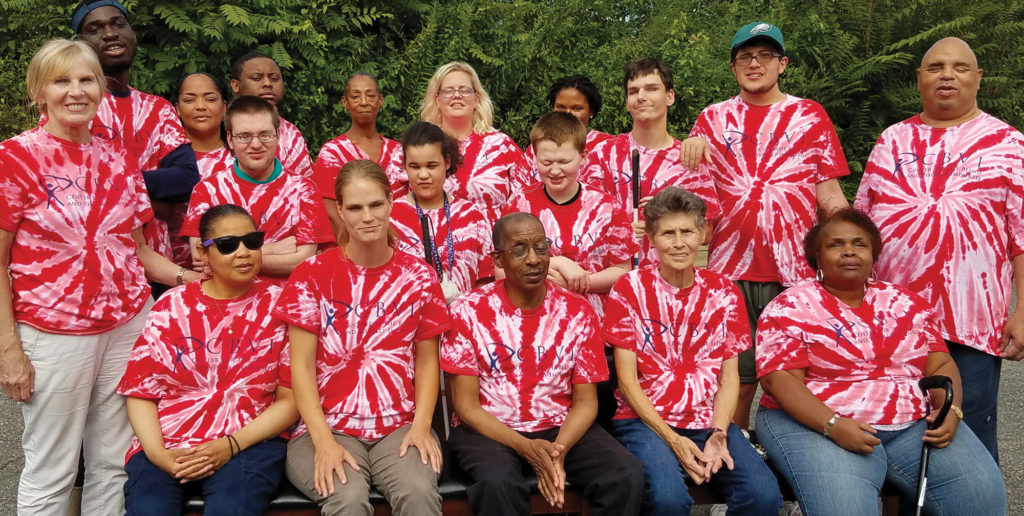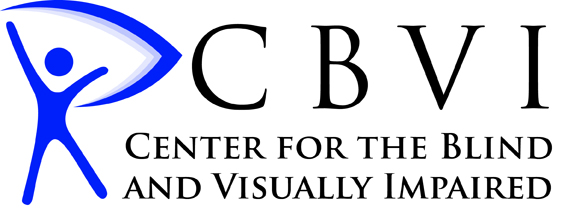Individual Development through Experience, Assessment, and Learning
July 13 – August 8, 2025

What is IDEAL?
IDEAL (Individual Development through Employment Assessment and Learning) is a four week residential summer program designed to assist students in transition from the safety of a structured high school environment to the complex reality of college life, a workplace, or living independently. IDEAL’s programming offers classroom and community-based instruction in both group and individual settings that focus on student goals. The program is divided into three areas of concentration: college preparation, career exploration, and critical survival skills for living independently. A mid-year weekend program occurs to conduct pre-assessments for those students who have yet to participate in the summer program or re-evaluation/follow-up instruction for past IDEAL participants.
What are the program objectives?
- Blindness Skills Development: Students refine a continuum of blindness skills needed for successful transition from high school into employment or college. These skills include independent living, effective communications, and safe independent travel. This is provided by a Vision Rehabilitation Therapist, an Orientation and Mobility Specialist, and a Communications Instructor; paired with all other staff including dormitory staff.
- Computer and Access Technology: Students will explore current access technology options, refining skills in this area. The curriculum for this area is the same as it would be for adults who receive instruction throughout the year. This instruction is provided by an Access Technology Program Director and Access Technology Specialists.
- Career Development: Students learn about a variety of jobs and the labor market in order to make informed career decisions. This instruction is provided by a Vocational Specialist, with support from each student’s program supervisor.
- Employability Skills: Students develop work readiness skills such as job search techniques and appropriate workplace behaviors. This instruction is provided by a Vocational Specialist, with support from all staff.
- College Preparation: Students will address college-specific issues such as accessing services from the college’s disability office, resolving technology issues, registering for recordings for the blind, note taking, college research, test taking, etc.
- Transition Planning: Students participate in classroom and community-based instruction and activities according to his or her transition needs. During the final week of the program, the student participates in a transition planning meeting which discusses transition goals and needs. Parents, BBVS counselors, and school district personnel are invited to participate.
Who can attend IDEAL?
- IDEAL is a program focused on transition; those who are eligible to come are students age 14 to 21 who are visually impaired or blind.
The student must be considered able to benefit from structured programming.
The student must be physically, intellectually, and emotionally able to participate in the full-day program. - The student’s medical condition must be manageable and not require constant supervision.
- The student must not be injurious to self or to others.
The student needs to demonstrate the capacity to apply what they have learned towards future post-secondary education program or permanent employment.
Do I have to live in Pennsylvania?
No, students do not have to live in PA to come to IDEAL. Surrounding state agencies occasionally will send students to our program. Any interested student that meets program requirements can attend IDEAL as long as they are able to be funded.
Where is IDEAL?
IDEAL is located at The Center for the Blind and Visually Impaired (CBVI) in Delaware County. Delaware County is located southwest of Philadelphia, and is relatively close to both New Jersey and Delaware state lines. This location provides students the opportunity to experience city life on a smaller scale while allowing the students access to activities in a comfortable setting. This location not only provides an abundance of resources to explore higher education but also allows students to experience a variety of museums, festivals, gardens, historical sites, restaurants, sporting events and as well as many potential resources for employment.
Who pays for IDEAL?
This program is supported by the Bureau of Blindness and Visual Services (BBVS); a division of the Office of Vocational Rehabilitation (OVR). BBVS provides services in Pennsylvania to help those with visual impairments gain or maintain employment while living independently. In order to get funding through BBVS you must be a registered customer of this organization.
Other students have been able to be funding through their school district, service organizations, private foundations, or through private pay. For questions regarding funding or how to be referred please contact us for assistance.
How much does IDEAL cost?
The total cost of IDEAL is $10,252.50. This cost includes all room and board accommodations as well as any planned activities. Students do not need to bring money to pay for any activities. Students can bring money for their own spending if they so wish. They will have the opportunity to go to the store, nearby restaurants, and use vending machines within the building.
Why should your student come to IDEAL?
Your student should come to IDEAL if they are in the transition years that we have
mentioned. Every student should come to IDEAL that needs any instruction in the
following areas:
COMPUTER ACCESS TECHNOLOGY
The Computer and Access Technology (CAT) area assesses IDEAL students’ access technology needs and provides instruction in identified areas. Instruction in general computer function, email and Internet usage, basic Microsoft programs, and access technology (screen magnification and reading programs, scanners, note takers, Braille embosser, etc.) is included in this area. Staff technician are available to assist students in hardware and software setup, which is essential for the college bound student. Students in the IDEAL program may also focus on finding information for college-worthy papers and for general information.
HOME AND PERSONAL MANAGEMENT
Home and Personal Management instruction involves activities which enable an individual to maintain their lifestyle and residence independently and safely. Students receive training in the following areas:
- Clothing care
- Laundry
- Housekeeping
- Grooming
- Kitchen skills
- Meal planning and preparation
- Table etiquette
- Self-advocacy
- Budgeting
- Personal record keeping
- Consumer affairs
- Information gathering
- Simple household repairs
- First aid and safety
COMMUNICATION SKILLS
Students receive training in simple to complex communicative skills. Simple communicative skills include the use of services provided by the Free Library for the Blind and Physically Handicapped, effective listening skills, note taking, telling time, utilizing the telephone and money identification. Complex communicative skills include reading and writing noncontract and contracted Braille, keyboarding with computers that are equipped with access technology for the blind and visually impaired. In communications they are also taught remedial academic skills instruction for spelling, math, and vocabulary building. While preparing speeches, cover letters, and resumes.
ORIENTATION AND MOBILITY SKILLS
The Orientation and Mobility component provides instruction in the skills, method and strategies necessary for independent travel within the community. Areas of instruction include:
- Safety techniques
- Sighted guide skills
- Cane techniques
- Indoor travel skills
- Outdoor travel skills
- Street crossings
- Public transportation
- Low vision aids
Additionally, clients are taught methods for optimizing the use of their remaining senses and developing the efficient use of any remaining vision. Assistance is also provided to persons interested in obtaining a dog guide. For the pre-college student, additional instruction is given in navigating the college campus, classroom, and cafeteria settings, and locating the cafeteria line and handling trays and the disposal of any trash.
VOCATIONAL ASSESSMENT
In Vocational Assessment and Career Exploration a variety of assessment tools and activities are utilized to measure learning ability, academic achievement levels, motor skills, personality factors, vocational interests, and work style. The individual is then guided in a computerized search of occupational briefs based on his/her interests and abilities. Information is provided on selected occupations, which includes educational or training requirements, entry level wages and benefits, employment potential, etc. for the college bound individualizes, information on thousands of colleges is available as well. Instruction in work readiness and job search techniques is a component of training and includes job interviewing, monitoring opportunities, and dealing with vision loss issues in the workplace.
INDEPENDENT/RESIDENTIAL LIVING
Residential services include room, board, and supervision; provided by CBVI for those participating in the IDEAL program. The following services are provided to our students:
- A dormitory/residence setting to further practice skills for independence learned in daily classes.
- Further refining and development of personal/social skills in a group living arrangement and in the community.
- A combination of independence, social, and confidence-building activities outside the program’s residence in the local community and surrounding areas.
Program staff rate student progress through activities in a variety of areas, and in individual and group discussion. Areas include:- Independent living
- Personal grooming
- Preparing breakfast, lunch and small meals
- Laundry and clothing care
- Basic housekeeping, including bedroom, kitchen, and general living areas
- Personal/Social skill development
- Demonstrating proper table manners
- Being an effective team member
- Learning how to live with others
- Interacting appropriately with dorm residents and staff
- Community referenced and confidence building activities such as: Ordering, eating, and paying in a restaurant. Navigating through a shopping experience; including traveling through the mall, shopping, and making purchases.
To get the most out of the IDEAL program, each student is strongly encouraged to live in the dormitory for the duration of the program. Experience has proven that students who did not live in the dormitory did not benefit fully from the instruction others received in the dorm.
Who do I contact about IDEAL?
Anthony Johnson – 610-874-1476
Or
Jennifer Lilly M.S., CVRT – 724-734-5158
Transition from High School when Blind
Online Registration

